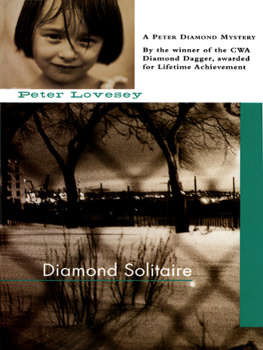Frauke Bolten-Boshammer - A Diamond in the Dust
Here you can read online Frauke Bolten-Boshammer - A Diamond in the Dust full text of the book (entire story) in english for free. Download pdf and epub, get meaning, cover and reviews about this ebook. year: 2018, publisher: Simon & Schuster Australia, genre: Non-fiction / History. Description of the work, (preface) as well as reviews are available. Best literature library LitArk.com created for fans of good reading and offers a wide selection of genres:
Romance novel
Science fiction
Adventure
Detective
Science
History
Home and family
Prose
Art
Politics
Computer
Non-fiction
Religion
Business
Children
Humor
Choose a favorite category and find really read worthwhile books. Enjoy immersion in the world of imagination, feel the emotions of the characters or learn something new for yourself, make an fascinating discovery.

- Book:A Diamond in the Dust
- Author:
- Publisher:Simon & Schuster Australia
- Genre:
- Year:2018
- Rating:3 / 5
- Favourites:Add to favourites
- Your mark:
- 60
- 1
- 2
- 3
- 4
- 5
A Diamond in the Dust: summary, description and annotation
We offer to read an annotation, description, summary or preface (depends on what the author of the book "A Diamond in the Dust" wrote himself). If you haven't found the necessary information about the book — write in the comments, we will try to find it.
A Diamond in the Dust — read online for free the complete book (whole text) full work
Below is the text of the book, divided by pages. System saving the place of the last page read, allows you to conveniently read the book "A Diamond in the Dust" online for free, without having to search again every time where you left off. Put a bookmark, and you can go to the page where you finished reading at any time.
Font size:
Interval:
Bookmark:
A DIAMOND IN THE DUST
First published in Australia in 2018 by
Simon & Schuster (Australia) Pty Limited
Suite 19A, Level 1, Building C, 450 Miller Street, Cammeray, NSW 2062
A CBS Company
Sydney New York London Toronto New Delhi
Visit our website at www.simonandschuster.com.au
Frauke Bolten-Boshammer and Sue Smethurst 2018
All rights reserved. No part of this publication may be reproduced, stored in a retrieval system, or transmitted in any form or by any means, electronic, mechanical, photocopying, recording or otherwise, without prior permission of the publisher.

Cover design: Christabella Designs
Cover photograph: Chris Magnay Photography, www.magnay.photos
Internal design: Christabella Designs
Typeset by Midland Typesetters, Australia
Land of Forrests, Fleas and Flies,
Blighted hopes and blighted eyes
Art thou hell in earths disguise?
Westralia.
Allan Deuchar
To the spirit of the people who have called Kununurra home
APRIL 1981, PERTH
The flight attendant raised an eyebrow as she locked eyes on our tickets.
Do you know what Kununurra is like? she asked smugly. I suppose it was understandable shed be curious about anyone with a one-way ticket to the most remote part of Australia especially a young couple who barely spoke English, with three small children in tow.
As she placed our luggage onto a trolley, already piled high with newspapers, sacks of flour and bibs and bobs of machinery, I lifted the baby a little higher on my hip, confidently pushed a stray brown curl off my face and summoned every ounce of false bravado to plaster a smile across my face.
The stubborn German blood that ran through my veins was not prepared to give even the slightest hint of the crippling fear that had stolen my sleep since my husband Friedrich dropped a bombshell six months earlier: we were moving to Australia.
Flights from Perth to the outback were a rarity, and so were passengers on them. Flight MV 392 from Perth to Kununurra via Derby, known as the milk run, delivered much-needed supplies to the remote cattle stations and tiny settlements that dotted the vast desert. For the people who lived there, it was a lifeline to the outside world.
There was no fancy cabin service, no message from the captain to sit back, relax and enjoy the flight. We were cargo, of the human kind, to be delivered to the furthest part of the desert.
With our tickets checked, eleven-year-old Fritz and ten-year-old Margret raced across the tarmac and up the metal stairs to find their seats, while the last of our luggage was placed into the cargo hold. We didnt bring much with us. The thick woollen coats and hats needed to survive the winter at home were packed into the attic of our farmhouse in Seedorf, in Northern Germany, awaiting our return. A handful of suitcases and the clothes on our back were all we would need for our adventure.
We were on our way to one of the most remote and isolated areas of Australia, possibly the world. A crocodile-infested corner of the outback, eight hours drive from the nearest major town. Our new home was to be a farm Id not seen, in a place Id never heard of, with a name I could hardly get my tongue around, 3200 kilometres from Perth, on the border of the Northern Territory and Western Australia; in the middle of nowhere.
I buckled myself in for the ride of my life.
The state of Schleswig-Holstein, where I was born and raised, is known for its picturesque rolling hills, rich green fields and secluded lakes that look like scenes straight from The Sound of Music . I confess to getting a little homesick every time I see that movie.
My mother was the love of my fathers life. They got engaged on the eve of the Second World War, and when he was enlisted to serve in the German army they wrote more than four hundred love letters to one another to keep in touch.
Every one of my fathers notes began, My darling Lotte! Our thoughts return to each other. There are pages and pages in the most perfect pen, sharing tales of life in the trenches. My mother would write back, offering comforting words from home. They married when he was home on leave, but the honeymoon had to wait because he was shipped back to the front line. They hated being apart.
After the war, my father returned and they began their married life living and working on my grandfathers farm in Neuheim. Then along came my brother, Juergen, in 1943 followed by my sister, Dorte, in 1945. I was born Frauke Seemann on 3 October 1947. Frauke means little lady.
Not long after my second birthday, my mother, Liselotte, died from cancer. She was just thirty-four years old. I never knew her, and it breaks my heart to this day that I have no memories of her that are my own. My memories belong to others, recollections borrowed and cobbled together from stories and snippets I begged my family to share. With their help, Ive pieced together a patchwork picture of her, a treasured image Ive locked away in my heart.
I have one precious photo of us together, a fading black-and-white picture that sits in a frame in my bedroom. I wake to her face every day. She was very sick from the cancer when the picture was taken. Thin and pale, she shows no resemblance to the robust German women of my family, but Im grateful for that one image; it gives me something to cling to.
My father, Johannes, was bereft when she died. Her coffin was lined with her favourite flowers, so she was buried resting her head on a thick bed of dark red and crimson carnations. When the coffin was sealed, huge garlands of flowers were draped over the top. My brother and sister and I werent allowed to attend her funeral we werent even told shed died until after she was buried. We never got to say goodbye.
In his eulogy, my father proudly declared that they had a great love which grew every day, and called her his dear partner in life. He recalled how sad it was to say goodbye to her in the rare times he was home on leave during the war. It was difficult for me never knowing if we would see one another again, but her silent prayers, her bravery, her love; everything contributed to me surviving the war.
In the final hours of her life, she squeezed his hand while he tenderly cradled her, until death was stronger and she no longer had the strength to defeat it, he told the congregation.
Years later I was told that he broke down in tears reading his final words: My only wish is that the children and I could see you just one more time. Ive read his eulogy many times; its clear he adored her. I believe his heart and his spirit were broken the day she died. He kept a lock of her hair with him for the rest of his life.
After she died, we barely spoke about my mother; it upset my father too much. Whenever one of us would mention her, hed cry. We could see how sad it made him; he was heartbroken. We didnt want to upset him too much, so we just stopped talking about her. It was like she never existed.
My father struggled to look after us without a wife; at that time it was not considered a mans job. He was a very traditional man, a stout German farmer whose role was to provide a home for us, a roof over our heads and food on the table and he did all of that, but he struggled to show us love.
What we craved most was affection, a fathers gentle hug, someone to wipe away the tears and tell us everything would be okay, but he was trained to keep a stiff upper lip and soldier on. Thats what he expected of us too; he sternly reinforced the belief that children were to be seen and not heard.
Next pageFont size:
Interval:
Bookmark:
Similar books «A Diamond in the Dust»
Look at similar books to A Diamond in the Dust. We have selected literature similar in name and meaning in the hope of providing readers with more options to find new, interesting, not yet read works.
Discussion, reviews of the book A Diamond in the Dust and just readers' own opinions. Leave your comments, write what you think about the work, its meaning or the main characters. Specify what exactly you liked and what you didn't like, and why you think so.

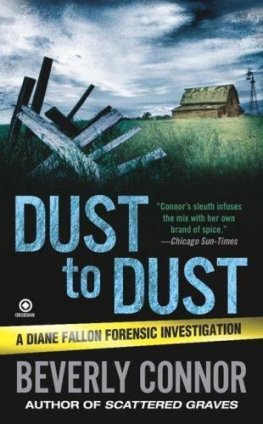
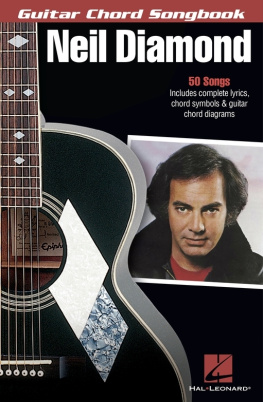
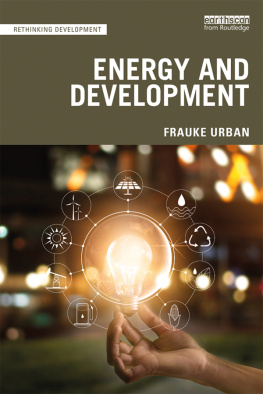
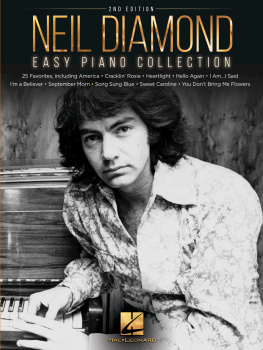
![Diamond - By Lisa M. Diamond: Sexual Fluidity: Understanding Womens Love and Desire [Paperback]](/uploads/posts/book/138039/thumbs/diamond-by-lisa-m-diamond-sexual-fluidity.jpg)
